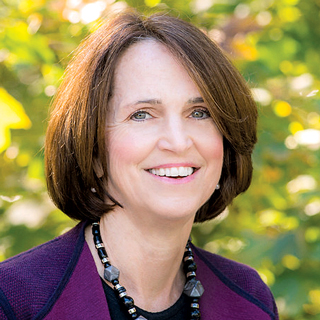
The nation’s second largest nursing home association doesn’t expect the long-term care industry to see a mass exodus of workers if more providers enact COVID-19 vaccine mandates for its employees. In fact, the group expects the number of workers leaving to drop if more operators join in.
“Some of our members have already mandated vaccines as a condition of employment,” Katie Smith Sloan, LeadingAge’s president and CEO, told McKnight’s Long-Term Care News on Monday. “Based on their experience, we’ve seen that when employers issue a mandate with sufficient lead time — combined with education, answering questions about the vaccine and explaining the benefits — many hesitant employees will accelerate their decision to get the vaccine. While there are valid concerns about mandates’ potential contribution to workforce shortages, what we are seeing, to date, is a modest loss.”
“We believe that as more healthcare providers mandate vaccines, the probability of employees resigning will decline,” she added.
Sloan’s comments came after LeadingAge announced its support for a COVID-19 vaccine mandate for all healthcare workers — joining more than 50 other professional healthcare groups. Later Monday, the Department of Veterans Affairs announced that it had made COVID-19 vaccinations obligatory for all VA healthcare personnel — the first mandate by a federal agency.
“Our position reflects the ethical obligation of providers to deliver safe, quality care to the older adults and others they serve, and also the most recent scientific evidence available,” LeadingAge wrote Monday.
The American Health Care Association on Monday said it’s not joining in the call for vaccine mandates for all healthcare workers at this time.
“For now, we continue to focus on educational efforts to increase vaccine confidence,” a spokeswoman told McKnight’s Long-Term Care News on Monday.
AHCA leaders were “having conversations” about developing a vaccine mandate position paper, association board member and Good Samaritan Society CEO and President Randy Bury told McKnight’s on Friday. He said he hoped the final policy would support providers who decided to mandate COVID-19 shots as a condition of employment.
No EUA prohibition?
Some long-term care operators have opted to wait until the available COVID-19 vaccines receive full approval from the Food and Drug Administration, and not solely approved for Emergency Use Authorization.
Sloan said there is nothing under federal law that prohibits an employer mandate for a medication that is under EUA approval. She added that recent federal courts have upheld separate COVID-19 vaccine mandates from a hospital system and a university.
“There may be some restrictions under state laws regarding vaccine mandates, whether under EUA or full approval, so providers need to examine those laws when considering a mandate. Also, the EEOC guidance lays out what employers need to do if they institute a vaccine mandate,” Sloan said.
She added that it’s important to note that even with mandates no one is forcing anyone to get vaccinated.
“Employees have a choice.If the employee chooses not to be vaccinated, the employee is encouraged to seek employment elsewhere, where they will not be working closely with and potentially endangering the lives of a population most vulnerable to severe illness and death as a result of COVID-19,” she said.
Persuasion still the first option
LeadingAge also noted that just over 80% of nursing home residents are fully vaccinated, while the number is about 61% nationwide for nursing home staffers. Sloan said from its member experiences education and persuasion has been the best tools to increase staff vaccination rates.
“But after 18 months, we’re facing a surge in new cases and the Delta variant. We don’t want a repeat of what we’ve been through, for anyone — not for older adults, or the people who care for them. If a community is at risk, and cases are rising, then older adults and long term care are at risk,” Sloan warned. “Persuasion is and always will be our tool of first resort.”
She also noted that providers who have required vaccines as a condition of employment universally “don’t just issue a mandate and walk away.”
“They continue to build trust with employees, engage in one on one conversations with them, rely on peers and ‘in-house vaccine ambassadors,’ provide access for employees to solid information they can trust, and all the other activities they would be doing without a mandate,” Sloan added.





